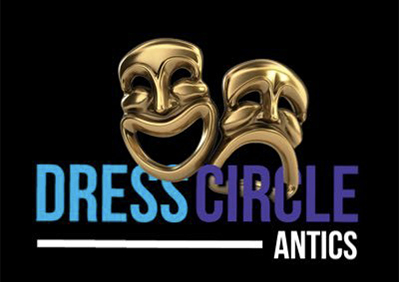The Censor: Jonathan McGarrity (The Censor) & Suzy Whitefield (Miss Fontaine)
Venue: The Hope Theatre
Performance Date: 28 June 2019
Star Rating: ★★★★
Shocking, uncomfortable and close to the bone are just some of the ways to describe Anthony Neilson’s controversial play, The Censor. Set in the small and intimate space of the Hope Theatre there is nowhere to hide in this stark and explicit look at sexual fantasy and the ultimate taboos that drive them.
Anthony Neilson does not shy away from controversy; in fact, he rather revels in it. Audience members walked out of Stitching, his piece about sexual servitude and abortion, mid-show. The play was also so widely condemned that in 2009 it was banned in Malta. Here in the round of The Hope Theatre, the all-female production company RoundPeg Theatre have revived Neilson’s complex play, The Censor. Originally written in 1997 the piece was performed at The Finborough Theatre before transferring to the Royal Court in the West End.
Miss Fontaine (Suzy Whitefield) finds herself going toe to toe with a repressed, uptight and serious Censor, Frank (Jonathan McGarrity) who wields his licensing scissors in a dark and dank “shit-hole” of an office. Miss Fontaine is aghast when Frank informs her that he can’t certify her film for general release. The reason – her film is hardcore pornography. The censor has the power to condemn her film to the cutting floor in its entirety unless Miss Fontaine can make him see the sex as something more meaningful and metaphoric.
What ensues is 70 minutes of deeply uncomfortable theatre. It’s cleverly explicit, which is in large thanks to the engagement of Intimacy Supervisor Ita O’Brien and Co-ordinator Kate Lush. Despite being written over 20 years ago, the themes remain largely shocking and taboo. The scene is soon set as Miss Fontaine strides nonchalantly into the Censor’s office, stripping off her top and propositioning Frank in an early attempt to get him to bend to her will. Although it’s not initially clear, Miss Fontaine sees something in him, repression so deep-rooted she’s determined to dig it out and prove her point.
Esteniah Williams’s set and stage design could almost be considered theatre noir. White sheets in each corner of the space are used to deliver excerpts of a pornographic film that play during pertinent moments. Imogen Beech’s directional choices are crucial, yet they succeed or fail according to the quality of the performances. With such challenging material to deliver anything less than complete conviction by the three actors could cause a descent into cringe-worthy titillation.
The dangerous cat and mouse game that Miss Fontaine and Frank play is delivered brilliantly by Suzy Whitefield and Jonathan McGarrity. Whitefield does wonderful work with Miss Fontaine. She is inherently unlikeable yet deeply committed to her belief that sex is a form of unspoken communication, and the depiction of which is a work of art. Her contentious career choice has obviously given her an aptitude to read the human psyche and she has the Censor’s number from the word go.
McGarrity is believable as the conflicted and repressed Frank. Deeply unhappy in his marriage, his wife (an underused, yet highly impactful Chandrika Chevli) is regularly unfaithful and pops up at opportune moments to (ironically) try to talk to Frank about feelings. Frank is beguiled by Miss Fontaine and her apparent disregard for ethics, morals and common decency.
When we finally get to the crux of the Censor’s repression, it’s deeply uncomfortable, hugely taboo yet incredibly liberating for Frank himself. This scene alone is an example of why Neilson’s work causes such outrage and controversy, and it’s certainly not for the faint of heart. That said the delivery of the scene is incredibly clever and thanks to expert direction and clever use of videography, it has the desired effect without crossing the line.
There is no question that the themes of the piece are unsettling and contentious, never more so when Miss Fontaine asserts that sexual deviants, perverts and those with abnormal sexual desires are in fact pioneers that should be celebrated.
Whether you are liberal, sexually repressed or consider yourself to have ‘normal’ (what is normal?) sexual desires then this play will make you think. It’s a risk – it’s a risk to produce and a risk to observe because it forces the audience into some serious territory. In the end, the sex is secondary and the play is driven by the power of female pleasure, a subject that is still highly litigious. It also asks the audience to question the appropriateness of their own sexual desires and whether they are in fact as taboo as those covered in the play.
RoundPeg Theatre should be congratulated for taking the risk with The Censor, theatre should challenge, provoke and entice a reaction, and this play does that tenfold.



